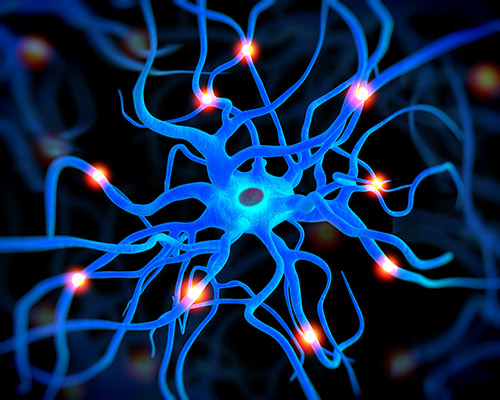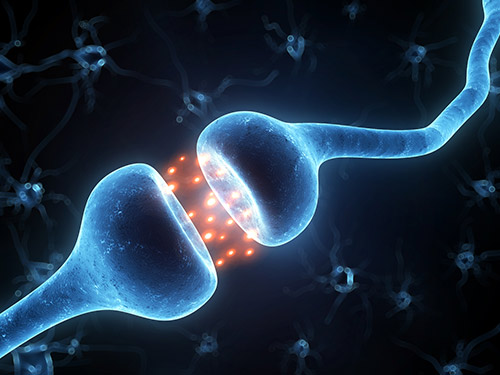28 Dec Change the way you think, act and feel by rewiring your brain while you sleep.

Hello! Nice to meet you. We don’t know your name yet but we have written this for you.
When we talk to friends or colleagues about our work on Applied Neuroplasticity and Brain Reprogramming with large organizations, we are constantly asked: “Is it really possible to rewire our brains easily and rapidly? Does it work the same way for individuals?
“Can you really get rid of those nasty habits that have been making you miserable for so long, while you sleep?
“Can you improve the good habits you already have to help you achieve substantially better results, while you sleep?”
The answer is a resounding YES. It is possible, and easy, and remarkably quick to rewire your own brain in order to improve the way you feel, act and think forever. Every moment of our life, our brain is constantly making new connections – nonstop, 24/7. Good, bad, the equipment doesn’t care. Why not help it make connections that benefit us rather than hurt us?
All of us have accumulated over the years of our lives a number of unhelpful behaviour patterns that affect our health, our happiness and our success, often in a very significant way. Habits or behaviours that we can’t seem to be able to get rid of, no matter how painful or damaging they are or how hard we try.
Neuroscience has discovered that we don’t have to try. Or practice, or rehearse, or take training, or remember to apply the learning, or anything else that requires conscious effort. Our brain is so smart, it can do it all for us on automatic without us having to try. It already knows how to replace unhelpful behaviours with beneficial ones rapidly. Thanks to breakthroughs in the Neuroscience of Brain Reprogramming, we now have ways of making speedy changes in the way we feel, act and think practically overnight, while we sleep. (Did you know that a whole branch of modern chemistry came from one dream?
To give you an idea of how malleable and open to change the brain is, we often use the metaphor of a dirt road onto which so many cars have traveled that they have formed ruts. Once those ruts are imprinted in the road, it becomes more and more difficult with time to drive outside of them.
The neuronal paths formed in our brains by the continual reinforcement of certain habits, be they ‘good’ or ‘bad’, act in a similar fashion. We are bombarded every day with outside influences that solidify those ruts. If those influences are “bad” for us, we are hardening the “bad” or unproductive neuronal paths in our brain. If they are “good”, the opposite pattern is reinforced. The brain itself doesn’t care one way or the other, it just accommodates whatever we trigger.
 So we are both lucky and unlucky that the brain is so malleable because it will, outside of our conscious awareness, form whatever ruts (hardwired connections) we drive our brain into. OR, with awareness and the proper tools, it will get out of those ruts (disconnect the neurons), close them up once and for all (let them shrink away from disuse), form new ruts (new healthier connections) and harden those up over time.
So we are both lucky and unlucky that the brain is so malleable because it will, outside of our conscious awareness, form whatever ruts (hardwired connections) we drive our brain into. OR, with awareness and the proper tools, it will get out of those ruts (disconnect the neurons), close them up once and for all (let them shrink away from disuse), form new ruts (new healthier connections) and harden those up over time.
That is why the Neuroscience of Brain Reprogramming is so effective and produces rapid and permanent changes. You can begin to instruct your brain to get your “car” out of those unhelpful ruts, form new ones and keep you driving down those new ruts on automatic. And it does that most effectively while you sleep.
 Since your brain rewires itself anyway every night while you sleep based on what has happened since its last sleep cycle the night before, you can imagine how powerful it is to instruct your brain to rewire itself to produce the results you want in your life right now. You begin immediately to notice beneficial changes in the way you think, act and feel, right from your very first sleep cycle and every night thereafter. If you have not already done so, go back and watch the YouTube video I mentioned earlier.
Since your brain rewires itself anyway every night while you sleep based on what has happened since its last sleep cycle the night before, you can imagine how powerful it is to instruct your brain to rewire itself to produce the results you want in your life right now. You begin immediately to notice beneficial changes in the way you think, act and feel, right from your very first sleep cycle and every night thereafter. If you have not already done so, go back and watch the YouTube video I mentioned earlier.
Who can benefit from reprogramming their brain?
At the Centre for Applied Neuroscience in Business, we get telephone calls all the time from individuals who are looking for a radical way to change the way they feel and behave.
People who:
- live in fear
- feel helpless
- doubt themselves and are overly shy
- have low self esteem
- are sad and unhappy and have lost their taste for life
- suffer from depression or mood swings
- are driven by anger
- experience difficulties in their relationships with family, friends, colleagues, authority figures
- deal with unresolved grief
- live in a fog
- are easily manipulated and feel trapped
- are terrified of rejection
- can’t seem to overcome bad habits that have plagued them for years
- struggle with stress, anxiety, panic or chronic fatigue
- have difficulty expressing how they feel
- are bedeviled by compulsive, addictive behaviours
- and a long list of other debilitating challenges
Others are dealing with health problems like:
- addictions, compulsions, obsessions
- insomnia
- eating disorders
- symptoms of menopause
- learning disabilities
- memory loss
- decline in cognitive capacities
- chronic pain
- and so much more
Others yet are simply looking for ways to improve themselves, to:
- confront their fears
- learn to think effectively
- increase their healthy self-regard
- sharpen their focus
- improve their creativity, flexibility, imagination, the ability to see the funny side of things and to respond spontaneously and appropriately to their environment
- follow through and finish what they start
- improve their performance
- set higher goals and achieve them
- decide on the best career path and pursue it
- be faster and better readers
- be better with numbers
- overcome procrastination
- eliminate lack of motivation
- be a better mate, partner, friend, lover, neighbour, colleague, all-around happy healthy person
- enjoy their passage through life more fully and ‘funly’
- or any number of ways to feel better about themselves
We are often told to get out of the box with our thinking. But if we already knew how to get out of the box, we would have done it. So exhortations to get out of that box are senseless.
Yes, the first step is awareness, but the second one is tools.
How does it work?
When we work with our clients, we offer them very simple concepts to illustrate:
- how big their brain actually is
- how their brain works
- how information is stored
- how old information can be rapidly updated
- how the two sides of the brain can harvest data and ideas from one another during every sleep cycle
- and much more.
Then we get them to practice some simple exercises to enable their brain to rewire itself to install the “new improved” patterns while they sleep every night.
We may also use some neuroplastic brain reprogramming technologies (non-invasive electrostimulation devices) that are available to help in specific situations and can vastly improve and accelerate their results. For more information on electrostimulation, please read our blog entitled “The wonders of electrostimulation for reprogramming your brain quickly and easily” .
The whole process is based on solid proven science developed over decades in laboratories all around the world by neuroscientists, tested successfully on real cases and even funded by NASA.
How long does it take?
How long before you notice a significant difference in the way you think, act and feel?
On average, 10 weeks.
It depends on the person, of course, but mostly it depends on how determined you are to change. Do you have a big enough NON-NEGOTIABLE GOAL?
Ask yourself:
- Does it hurt enough yet?
- Have I put up with limitations and self-imposed restrictions long enough already?
- Do I want to feel that way for the rest of my life or am I willing to invest 10 weeks into becoming the person I can be?
In this article http://www.alternet.org/5-top-regrets-people-have-end-their-lives, Bronnie Ware, a nurse who spent several years working in palliative care, caring for patients in the last 12 weeks of their lives, wrote that the top 5 regrets expressed by the dying are:
1. I wish I had had the courage to live a life true to myself, not the life others expected of me.
2. I wish I had not worked so hard.
3. I wish I had had the courage to express my feelings.
4. I wish I had stayed in touch with my friends.
5. I wish I had let myself be happier.
Sad, isn’t it, to arrive at the end of our lives with such regrets?
We all live with regrets but we do not have to keep repeating the same mistakes and create more regrets in the process. We all want the same basic things in life:
- Happiness
- Success
- Recognition
- Prosperity
And we all have the potential to live our lives to the fullest, according to our own definition of happiness, success and prosperity, regardless of our past, regardless of our current circumstances, shortcomings or challenges, and even regardless of whether we think we can or not. All we have to do is want it and take the first step. “We do not have to believe, we just have to do.”
The Neuroscience of Brain Reprogramming gives us the neuroplastic tools to change anything we don’t like in our lives and replace it with what we really want – while we sleep. And remember that because of this nifty little habit of the brain of rewiring its neurons while we sleep, the results are permanent.
Your life starts changing as soon as your brain starts rearranging itself automatically to accommodate the new helpful, beneficial behaviours that will give you the results and rewards that are unique and specific to your own idea of a happy, successful, prosperous life.
If the idea of substantially improving your brain functions excites you, there is no finer book on the shelves today than Dr. Barbara Arrowsmith-Young’s frame breaking “The Woman Who Changed Her Brain”.
You may also want to watch this YouTube video in which Dr. Norman Doidge explains some of the benefits to be had from reprogramming your brain. Dr. Doidge is the author of the excellent book “The Brain that Changes Itself“.

